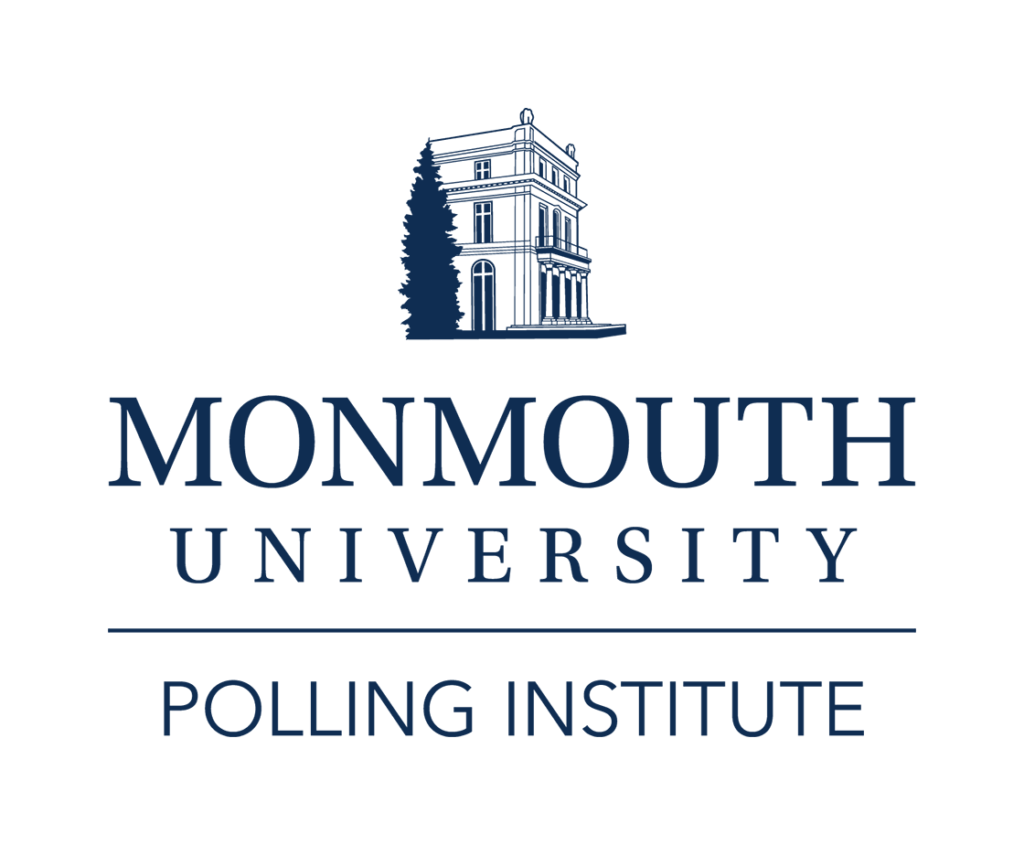The Monmouth University Polling Institute and the New Jersey Health Care Quality Institute today released the very first “Health Matters Poll,” a periodic survey of Garden State attitudes regarding healthcare related issues. The first poll gauges New Jersey residents’ opinion of the Affordable Care Act (ACA) and the impending individual mandate. Garden State views are either in line or slightly more positive than national attitudes about the law in general. But when it comes to actual knowledge of the individual mandate, Garden State residents are less informed than the rest of the country.
“We are excited about this new collaboration with the Monmouth University Polling Institute,” said David L. Knowlton, President and CEO of the New Jersey Health Care Quality Institute. “In the health care quality world, it is an important axiom that patients – the health care consumer – comes first. This new survey will take much of the guesswork out of understanding what they are thinking on important health care concerns.”
“Most New Jerseyans appear to be fine with upcoming implementation of the new health care law, but they are much less aware than other Americans about the individual mandate. Many uninsured New Jerseyans could be in for a surprise if they elect not to get health care coverage and later find they have to pay a fine on their 2014 taxes,” said Patrick Murray, director of the Monmouth University Polling Institute.
Just under half (45%) of New Jersey residents have a favorable opinion of the ACA health reform law, also known as Obamacare, while 40% have an unfavorable view and 16% express no opinion. This is somewhat more positive than national opinion as measured by a recent Kaiser Health Tracking Survey. That August poll found 37% of Americans with a favorable opinion of the ACA and 42% with an unfavorable view.
About half (49%) of the state thinks the quality of their own health care will not be affected by implementation of the ACA, although 30% think it will get worse and just 13% think it will get better. This is nearly identical to a national Kaiser poll taken in March, when 48% of Americans believed their health care quality would stay the same under the ACA, 34% said it would get worse, and 15% said it would get better.
There are more concerns about the ACA’s impact on health care costs than on quality. More than 4-in-10 New Jerseyans (42%) predict their own costs will get worse under the ACA, compared to 37% who say their costs will stay about the same, and just 14% who say they will improve. Nationally, the March Kaiser poll found that nearly half (49%) of Americans felt that the ACA would negatively impact their own health care costs – a number that is somewhat more negative than the New Jersey result. One-third (33%) of Americans said their own costs would stay the same and just 15% said they would get better. New Jerseyans who purchase their own coverage (48%) are as likely as those who have employer coverage for either their families (45%) or just themselves (44%) to say that their health care costs will worsen under the ACA.
“In my view, just as is true with elections, as we get closer and closer to the date that people will have to be concerned with this historic new law, they will pay more attention and gain a better and more accurate understanding of it,” said Knowlton. “I am not at all surprised by the level of understanding at this point.”
Most New Jerseyans feel they understand the health care reforms either very (18%) or somewhat (49%) well. Only 3-in-10 say they understand the ACA not too well (19%) or not well at all (12%). However, Garden State residents’ self-reported awareness of the reforms doesn’t necessarily correlate with their knowledge of specific aspects of the law.
Just 1-in-3 New Jerseyans have heard a lot (11%) or some (23%) regarding the new health care exchanges, or marketplaces, which open on October 1 st . Another 31% have heard only a little and 33% have heard nothing at all. These state numbers are nearly identical to a national poll taken by Kaiser in August (12% a lot, 21% some, 34% a little, 33% nothing).
New Jersey is significantly less informed than the nation, though, when it comes to the ACA’s individual mandate. Just over half (56%) of the state is aware that the new law requires nearly all Americans to have health insurance by next year or pay a fine. Another 24% erroneously say there is no such mandate in the law, and 21% admit they do not know if such a provision exists. Among New Jerseyans who do not currently have health coverage, 58% are aware of the mandate. Among those who currently purchase their own coverage and could potentially be impacted if they drop that coverage, 64% are aware of the mandate.
New Jerseyans’ knowledge of the individual mandate is significantly lower than national awareness. A March poll by Kaiser found that 74% of Americans said the ACA requires individuals to purchase health coverage or pay a fine. This awareness level is 18 points higher than the comparable New Jersey number and suggests that a lack of a statewide public awareness campaign could have an impact on residents’ compliance with the mandate.
Just over 1-in-10 (11%) New Jersey adults report that they currently do not have health care coverage. Among this group 62% say will probably obtain health coverage for 2014 after learning of the individual mandate. Another 24% say they will remain uninsured despite the mandate’s fines, while 13% are uncertain about what they will do. These results are similar to a national Kaiser poll from August, when 58% of uninsured American adults said they would obtain coverage under the mandate.
New Jerseyans who pay for their own health coverage or do not have coverage express mixed interest in shopping for better or lower cost coverage on the new health care exchanges. Nearly half say they are very (27%) or somewhat (19%) interested in seeing what options the exchanges would provide for them compared to half who say they are only a little (14%) or not at all (36%) interested in exploring what the ACA marketplace has to offer. Among the uninsured, 70% are interested in shopping on the exchange. A majority (58%) of those who purchase coverage on their own also express interest in exploring the exchange. New Jerseyans with employer provided coverage for their families (42%) or just themselves (37%) are less likely to be interested.
The poll also presented non-government insured respondents with a possible premium scenario for exchange coverage, based on early estimates of a potential $1,000 monthly unsubsidized premium for a family plan that includes an average 30% co-pay. Just 19% of respondents would be at least somewhat interested in exploring family coverage for this cost.
Of course, the exchange is geared toward those who do not have access to employer-provided coverage. Among New Jerseyans who are currently without insurance – the group who the exchange is initially designed to serve – just 22% would be interested in family coverage at $1,000 per month. However, more than 9-in-10 of these uninsured respondents report annual income levels that would potentially qualify them for federal subsidies to lower this cost. This means the amounts presented in the poll are markedly higher than the net cost that will be available to most residents who are currently uninsured.
Among New Jerseyans who currently purchase their own coverage, 32% are interested in looking into the exchange for alternate family coverage at $1,000 per month. The poll results suggest that most of those who currently purchase insurance on their own would not be eligible for the lower subsidized premium because less than half report even being in an income bracket that could potentially qualify for federal subsidies.
Since the exchange is theoretically open to anyone, the poll also asked residents with employer-provided coverage about their interest shopping these policies. Among New Jerseyans with employer-provided family coverage, just 16% would be interested in shopping on the exchange if the premium was $1,000 a month. This is somewhat lower than the interest level of those who purchase their own insurance or do not have coverage.
NEW JERSEY AFFORDABLE CARE ACT SURVEY
SEPTEMBER 2013 – QUESTIONNAIRE
I’d like to ask you some questions about the health reform bill that was signed into law in 2010, known as the Affordable Care Act or Obamacare.
1. Given what you know about the health reform law, do you have a generally favorable or generally unfavorable opinion of it? [PROBE: Is that a very or somewhat (favorable/unfavorable) opinion?]
2. Under the health reform law, do you think the quality of your own health care will get better, worse, or will it stay about the same?
3. Under the health reform law, do you think the cost of health care for you and your family will get better, worse, or will it stay about the same?
4. All in all, how well do you feel you understand what’s in the health care law – very well, somewhat well, not too well, or not at all well?
5. To the best of your knowledge, would you say the health reform law does or does not require nearly all Americans to have health insurance by next year or else pay a fine?
6. Are you, yourself, now covered by any form of health insurance or health plan or do you not have health insurance at this time? [READ IF NECESSARY: A health plan would include any private insurance plan through your employer or a plan that you purchased yourself, as well as a government program like Medicare or Medicaid?]
[NOTE: Question 7 was asked of those who said they are uninsured; n=75, m.o.e.=±11.3%]
7. As you may know, the health care law requires nearly all Americans to have health insurance by 2014 or else pay a fine. Do you think you will obtain health insurance in 2014, or do you think you will remain uninsured? [IF “DON’T KNOW” PROBE: We realize there is still some uncertainty, but if you had to guess, do you think you will obtain health insurance in 2014, or do you think you will remain uninsured?]
8. Which of the following is your MAIN source of health insurance coverage? Is it a plan through your employer, a plan through your spouse’s employer, a plan you purchased yourself, are you covered by Medicare or Medicaid, some other government program, or do you get your health insurance from somewhere else? [IF EMPLOYER/SELF COVERAGE:] Is this coverage just for yourself or does it also cover other family members?
[NOTE: Question 9 was asked of those who have a plan through an employer; n=439, m.o.e.=±4.7%]
9. Approximately how much do you or your spouse pay per month for your health insurance premiums?
10. As you may know, the health care law creates health insurance exchanges or marketplaces where people who don’t get coverage through their employers can shop for insurance and compare prices and benefits. How much, if anything, have you heard about this new health insurance marketplace? Have you heard a lot, some, only a little, or nothing at all?
[NOTE: Question 11 was asked of those who do not use Medicare, Medicaid, or a government plan as their main source of health insurance coverage; n=563, m.o.e.=±4.1%]
11. How interested are you in seeing if you can get better quality or lower cost coverage through the health insurance marketplace – very, somewhat, only a little, or not at all interested?
[NOTE: Question 12 was asked of those who are uninsured or have family coverage; n=401, m.o.e.=±4.9%]
12. If you could get coverage for your family that cost $1,000 a month in premiums plus a 30% copay for doctor visits and other treatments – would you be very, somewhat, only a little, or not at all interested in looking into the health insurance marketplace?
Click on pdf file link below for full methodology and results by key demographic groups.




